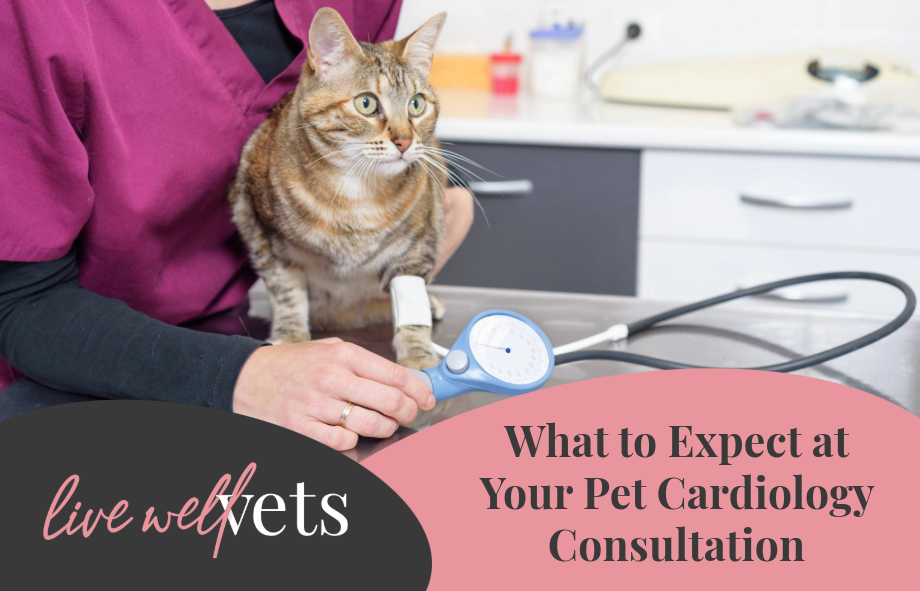Meet Sandra Regada – The Vet Running Our Pet Cardiology Clinics
Sandra runs our pet cardiology clinics here at Live Well Vets. She graduated in Portugal and began her veterinary journey in a busy emergency and critical care hospital, where her passion for cardiology truly began.
After moving to the UK, she completed internships — including one at the University of Cambridge — and went on to achieve a Certificate of Advanced Studies in Veterinary Cardiology. Sandra has been providing referral cardiology services across South Wales for several years and now brings her expertise to our clinics.
If your vet has recommended a cardiology consultation for your pet, we understand that it can feel a little daunting. But rest assured, we’ll sit with you, take the time to explain everything clearly, and make sure both you and your pet feel supported throughout the process.
Meet our Veterinary Cardiologist:
The Pet Cardiology Consultation
A typical pet cardiology appointment lasts around 30 minutes. During this time, we’ll talk through your concerns, ask questions about your pet’s history and symptoms, and perform a heart scan — also known as an echocardiogram. This is the most common and helpful test in veterinary cardiology.
What Is an Echocardiogram (ECG)?
An echocardiogram is a non-invasive procedure, similar to an ultrasound used during pregnancy, but focused on the heart. It allows us to:
- Visualise the heart’s structure
- Measure its size
- Assess how well it’s functioning
- Identify what might be causing symptoms
The Good News
Most heart conditions in pets are treatable — or at the very least, manageable. Whether through oral medication or, in some cases, minimally invasive procedures, we’ll always aim to create a personalised plan to help your pet live a happy and comfortable life.
What happens during a colnsultation?
Heart condition treatments can include:
- Medications to support heart function
- Drugs to control arrhythmias (irregular heartbeats)
- Lifestyle advice to maintain heart health
The most common heart conditions we see in Pets are:
- Mitral Valve Disease – The most common heart condition in small breed dogs, caused by a leaking valve.
- Cardiomyopathy – A disease of the heart muscle, typically seen in middle-aged to older cats, but can occur in younger cats too.
- Congenital Defects – Structural heart issues present from birth, more commonly diagnosed in puppies and kittens.
Heart Health FAQs:
Signs to Watch Out For
Early detection can make a significant difference. Look out for:
- Reduced ability to exercise
- Fast or heavy breathing while resting
- Coughing
- Fainting or collapsing
In cats, signs can be much more subtle:
- Lethargy
- Reduced appetite
- Breathing faster or struggling to breathe
- Open-mouth breathing — this is never normal in cats and should always be checked
What Is a Heart Murmur?
A heart murmur is a whooshing sound heard with a stethoscope. It can be caused by:
- A leaking or narrowed valve
- A hole in the heart
There’s a common misconception that the louder the murmur, the more serious the condition — but even soft murmurs can indicate a significant problem. That’s why we recommend a heart scan for all murmurs, especially in cats and younger dogs.



